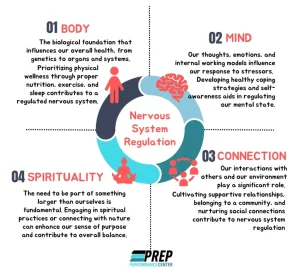
As Americans increasingly rely on screens such as phones, computers, TVs and tablets for entertainment and communication purposes – smartphones included – their health is taking a beating.
Screen time can lead to many health issues, from obesity to anxiety and depression. Luckily, there are ways you can cut down your screen time and stay healthy!
1. Obesity
Screen time can play an enormous role in contributing to obesity. Luckily, there are ways you can minimize it.
First and foremost, families need to establish rules about screen time limits. Ideally, families should limit TV watching to two hours daily and spend the remainder of their time participating in other activities such as playing outside or riding bikes.
Studies have revealed that children who watch more than two hours of television daily are at increased risk of becoming overweight and obese, even if they exercise regularly. Other forms of sedentary behavior like computer/video game use, driving and sitting at work have also been associated with increased weight gain in children.
2. Anxiety
Hard to believe, but screen time can be one of the key contributing factors for anxiety and depression among children. More kids are using screens as entertainment which has negative repercussions for their mental wellbeing.
If your child is experiencing anxiety and depression, seek professional assistance from a licensed therapist who can assist with setting limits on screen time and lead by example.
Studies demonstrate the negative impacts of screen time can cause weight gain, increased cholesterol levels and other heart-related health conditions. In addition, screen time may cause stress-related symptoms like irritability, poor sleep and increased anger levels.
3. Eye Strain
Long hours spent staring at a screen can result in eye fatigue, discomfort and blurred vision – a condition known as computer vision syndrome or digital eye strain (DES).
Many people suffer from CVS and eye strain. It can lead to headaches, dry eyes and neck/shoulder discomfort; but there are ways you can lessen the risks.
One way is to regularly switch up your focus. Use the 20-20-20 rule: every 20 minutes, shift your attention for at least 20 seconds towards something at least 20 feet away and shift it back.
Sitting too close to the screen may force your eyes to work harder in order to see clearly. Also, adjust the lighting in your room; too much brightness can irritate your eyes; dimming or filtering can provide relief.
4. Sleep Issues
Sleep is one of the key components to keeping both our minds and bodies healthy, helping repair damaged brain cells, restore emotional equilibrium and manage immunity.
Recent studies have demonstrated how excessive screen time can lead to sleep issues in adults and children alike, impacting natural melatonin production levels and leading to insomnia.
Disruptions to your circadian rhythm may also prevent you from getting the restful sleep needed to recharge and rejuvenate.
There are ways to mitigate the harmful effects of screen time on sleep, including restricting phone usage just before bedtime.
5. Depression
Screen time has been linked with numerous health problems, such as stress regulation, insulin resistance, eye strain and depression. Not only can screen time contribute to weight gain and lack of sleep; it may also damage heart health.
Good news is that by taking some simple steps you can decrease your screen time and sidestep many of these health concerns.
Start by setting a time limit and leaving your phone out of the bedroom at night. If you do need to check email, try using an app which lets you schedule it to appear at a specific time.
Positive people can help you appreciate all that life offers while breaking free of negative thinking cycles.







